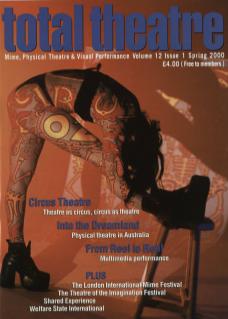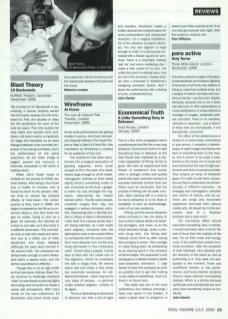The concept of 10 Backwards is fascinating: a woman projects herself into the future courtesy of a DIY time-travel kit. First, she records on video her life predictions for each of the next ten years. Then she studies her daily tasks and repeats them endlessly until every nuance is ingrained. On stage this translates as an eerie dialogue between a pre-recorded projection of her eating cornflakes, and a live performance of the same sequence. As the video image is jogged, paused and rewound, it becomes impossible to tell which is leading which.
When she's finally ready to embark on her journey to 2009, disaster strikes. After being in the future only a matter of minutes, she is forced to return to the present, without time to correct the physical effects of time-travel. The consequence is that, back in 1999, she begins to experience her life as a continuous deja-vu, and thus loses her grip on reality. Trying to pick up a glass, for example, she reaches six inches to one side, as if she exists in a different dimension. This convoluted story is told with clarity and precision due to a skilful use of video equipment and sharp dialogue (although the pace does dwindle in the second half). The characters are idiosyncratic enough to seem believable within a sparse script, and the techno soundtrack is effective.
Though this is not as high profile as their last piece, Kidnap, Blast Theory continue to challenge theatrical 'rules' by seamlessly entwining digital technology and live action to create a subtly odd atmosphere. With many minds on the new millennium, 10 Backwards asks some timely questions about the nature of memory and the relationship between the past and the future.

